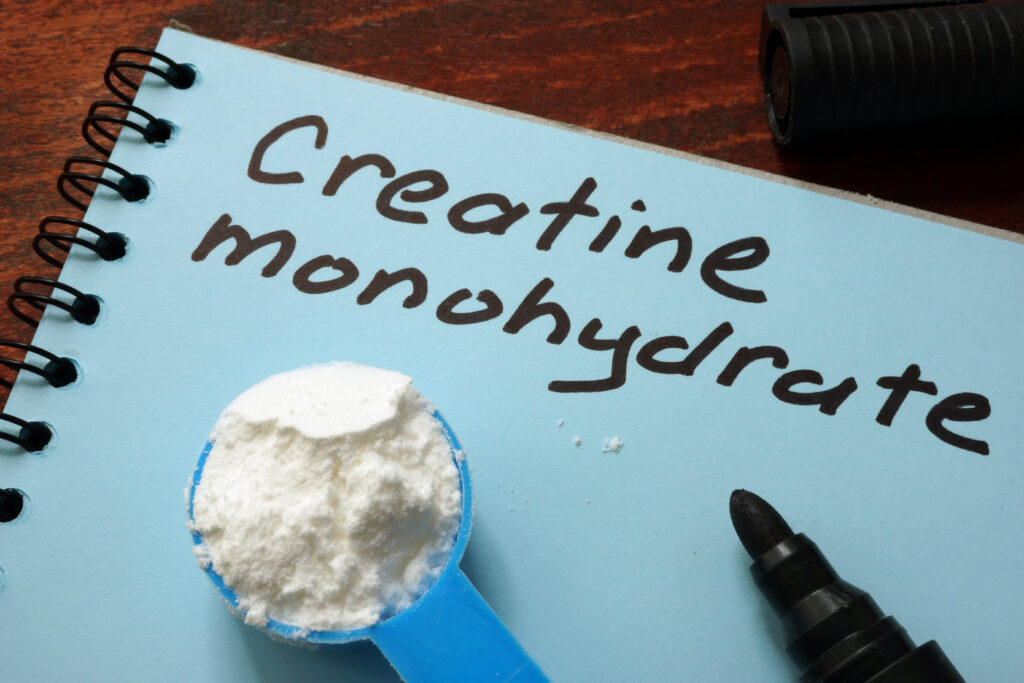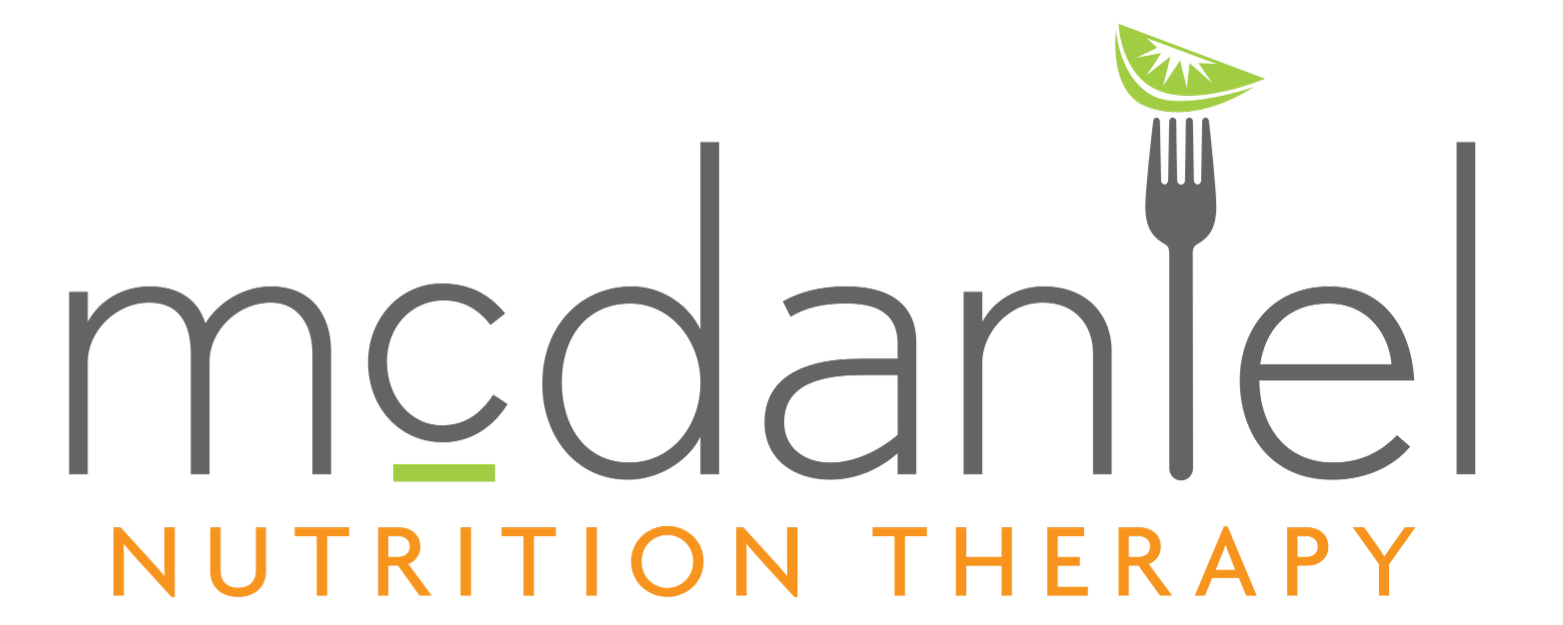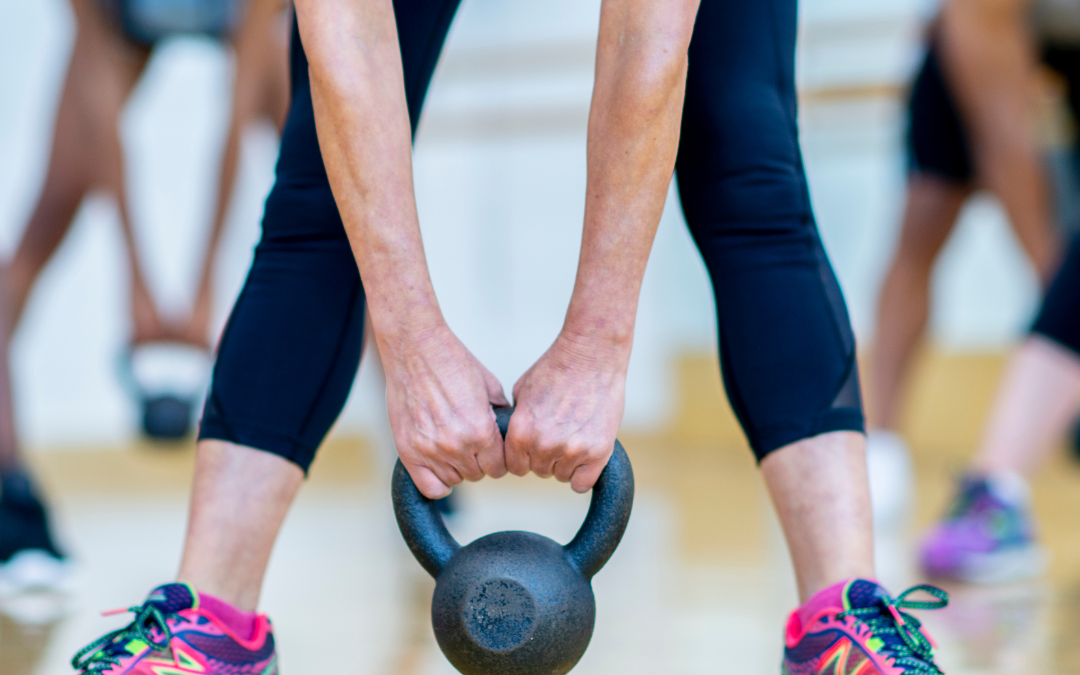If you’re like me, when you hear creatine powder, you quickly flash back to a high school boyfriend trying to bulk up or the pump monkeys in their tank tops at the gym. But, female friends, this supplement may actually be more applicable and useful to you.
What is Creatine?
Creatine is made up of 3 amino acids: arginine, glycine and methionine and your body actually makes it on its own. Our liver and brain produce about 1-3 grams per day. But, could more be better? The thought is yes. A common supplement recommendation of creatine is about 5 grams/day, and this amount can increase your body’s stores by about 30%. You also eat foods that contain creatine like animal protein and seafood. However, to get 5 grams of creatine from food, you’d have to eat around 3-3.5 lb of beef or fish and/or 200 cups of milk. The gym rats might be eating that much protein, but I bet you as a female, are not. Creatine may be particularly helpful for women since they tend to have 70-80% lower body stores compared to men (2).
Potential Benefits for Women (and, men, really)
Creatine has been shown to support increases in strength, muscle gain and function (3). Since we can lose about 3-5% of our muscle mass every decade after the age of 30, we’d like to take part in practice to slow that down. Eating enough calories, protein and weight training is certainly key to muscle loss prevention, and taking creatine may be the cherry on the top to maximally support you.
To reap the benefits, creatine supplementation should be combined with resistance training. In addition to gains in lean body mass and strength, emerging evidence suggests that higher doses may support brain health and bone health (1).
While we consider any woman who’s active to be an athlete, those who compete may notice that taking creatine supports the fast break at the end of a run or the power needed to cycle up a steep hill.
It has also been shown to help with mood swings that are common during the menstrual cycle. Supplementation can help with hormonal processes that influence mood especially in the luteal phase of a menstrual cycle (2).
How do I take creatine?

Most protocols recommend a dose of 3-5 grams of creatine monohydrate per day. You’ll also see weight specific recommendations at 0.1 g/kg/day, which for many individuals, is greater than 5 grams per day. Weight based recommendations may be more effective for those 40 years and older to increase effectiveness.
Your response to creatine is dependent on your genetics, dosage, aging/muscle mass, gender (females may have an impaired response), red meat intake, and activity level. Creatine is osmotic, meaning it will drag water into your muscle which may present as weight gain. Having a little weight gain with creatine supplementation is normal from swollen muscle cells (3). Creatine can be taken any time of the day and you can break it into multiple servings per day. It is best to schedule supplementation at a time that works best for you and what allows you to remember to take it. I stir mine into my water bottle during workouts, and on off days, I stir the powder into yogurt for my snack.
Are there safety concerns?
Creatine is very safe. Be sure to share with your physician that you are supplementing. This will make them aware of higher creatinine blood levels that may be measured following supplementation.
Use it or lose it? Yes, to both. Use the muscles in weight training, use the creatine powder daily, and mitigate muscle loss with aging. It’s an easy, safe way to support your (beautiful) aging body composition.
A sports dietitian can help optimize your athletic performance and guide you through adding creatine to boost your performance. Contact us to schedule an appointment!
References
- Candow, D. G., Forbes, S. C., Chilibeck, P. D., Cornish, S. M., Antonio, J., & Kreider, R. B. (2019). Effectiveness of Creatine Supplementation on Aging Muscle and Bone: Focus on Falls Prevention and Inflammation. Journal of clinical medicine, 8(4), 488. https://doi.org/10.3390/jcm8040488
- Sims , S. (2023, April 28). Why active women need creatine. Creatine Benefits for Women. https://www.drstacysims.com/blog/Why%20Active%20Women%20Need%20Creatine
- Smith-Ryan, A. E., Cabre, H. E., Eckerson, J. M., & Candow, D. G. (2021, March 8). Creatine supplementation in women’s Health: A Lifespan Perspective. MDPI. https://www.mdpi.com/2072-6643/13/3/877

